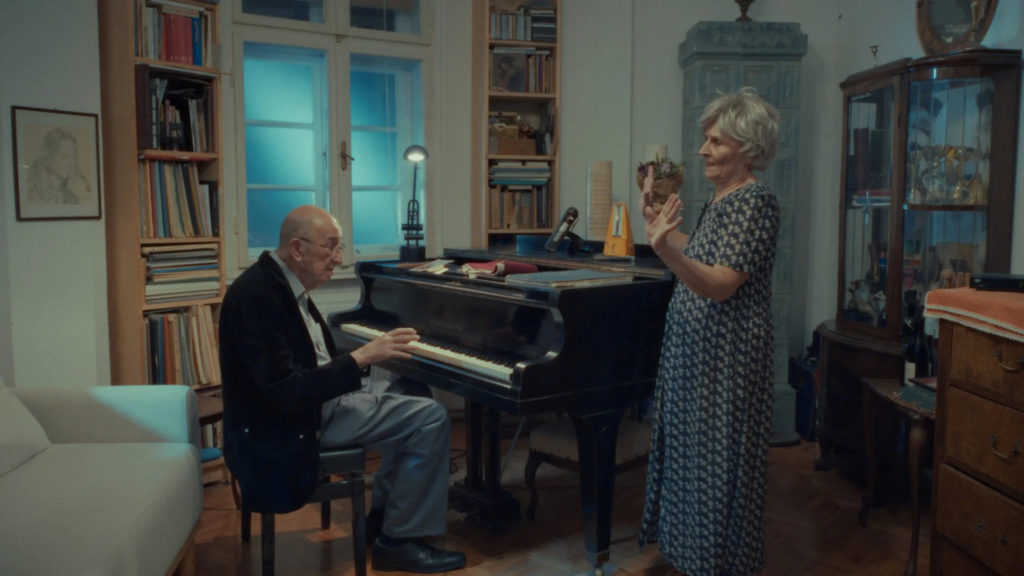Palic film review: Eighty Plus (2025)
Palic Film Festival

Having a filmography consisting mostly of documentaries, prolific Serbian director Zelimir Zilnik won the Berlinale Golden Bear in 1969 with the dramatic comedy Early Works, about a group of young people planning to do a revolution but having only intellectual books as a guide. More than half a century later, he returns to the festival, premiering a film subtly layered with political coating. Eighty Plus approaches the subject of nationalisation of properties during the Yugoslavian communist regime and their subsequent restitution decades after its downfall.
While the inheritance of an old mansion represents the inciting incident of the story, the fiction film with documentary touches revolves more around the life of octogenarian Stevan Arsin, a jazz pianist played heartwarmingly by debutant 89-year-old actor Milan Bata Kovacevic. Present for the screening at the 32nd edition of the European Film Festival Palić, along with co-star Vera Hrcan-Ostojic, the pair received thunderous applause for the authentic performance. The acting is definitely one of the strongest and most impressive features of Eighty Plus, especially since most of the cast consists of non-professional actors.
The production is also stylistically stunning. Shot on film to enhance the nostalgic feeling, the oversaturated colours with a tint of blue make the idyllic landscapes even more beautiful. The instrumental music adds to the romantic atmosphere, while the dynamic and fluid camera movements compensate for the often static scenes in which the characters are discussing, revealing parts of their personal history.
The protagonist’s past is inspired by Kovacevic’s real-life background as a musician and his involvement in the Montenegro Five, a band that indeed existed, touring Europe during the 1960s and 1970s. The film opens with the artist searching for their rare vinyl records in a vintage store, flooded with genuine excitement when he finds some. His best friend (Milivoj Kizdobranski) is also an ex-band member, and when Stevan returns from Germany, he proves to be his most trusted confidant in the journey of regaining his childhood home after eighty years. And like it usually happens with valuable inheritances, the large family – including the ex-wife, the daughter, the niece and the son-in-law – will try to grab a piece of the cake.
Nonetheless, this battle for a share of the profits does not turn into a drama at any point, but rather a comedy reminiscent of old genre tropes sprinkled with pure Balkan madness, as it is the case in the scene where the two friends are brought to the police station by a tractorist working on one of the protagonist’s fields, offered in leasing by the Government. Or when the son-in-law insists that Stevan takes a legal psychological test, only for him to pass it, proving his impeccable memory. The absurdity of greediness is taken lightly by him, and he is eventually rewarded for his unwavering but polite stance when he meets an old flame. Their love and admiration for each other are reignited, beaming as intense as ever. A kiss is still a kiss / …. / As time goes by – thus speaks the popular song featured in Casablanca, which he dedicates to her.
Named after the musical camp that Stevan intends to set up inside his manor and because the director and most actors pass the 80-year-old mark, Eighty Plus explores themes of financial stability, nostalgia, family, age and love. The individual story of the protagonist is interwoven with a broader historical context and looked upon retrospectively, but also through present-day lenses. What it truly brings to the audience, though, is hope. Hope that, despite our past, we can reclaim our present. Hope that there is meaning in everything that happens, no matter how hard it seems to see it. And, most importantly, hope that no age is too old to start over again.
















